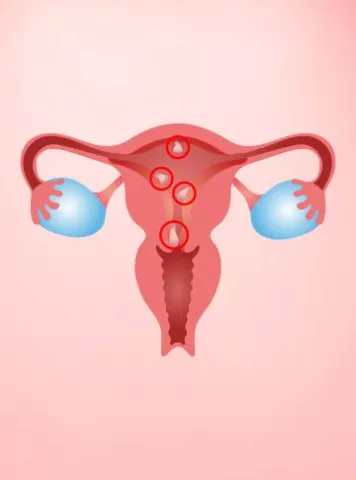Human chorionic gonadotropin (hCG) ,also known as pregnancy hormone, is produced by the placenta of the baby when you are pregnant . hCG hormone can be detected in urine and blood of pregnant women and this forms the basis of urine pregnancy testing kits and blood hCG levels for detection of pregnancy.
A woman might get confused when her treating physician asks for blood hCG levels and compare its reference values to her pregnancy duration. The questions that frequently comes to the mind are – What does this test mean? Is my hCG level good and does it mean that baby is growing normally? What if my hCG levels are not as per the expected levels? Should I repeat my hCG levels or is a single test sufficient?
Here are 10 important things one needs to know her hCG levels-
1. Should hCG levels be checked in every pregnant patient?
NO. If you have conceived naturally, a simple urine pregnancy test is sufficient to confirm pregnancy. If however, your urine test is negative and your doctor wants to test again, then a blood hCG level can be checked. hCG can be detected as early as 11 days after you have conceived and this early pregnancy can be missed by urine pregnancy testing kits.
2. Interpretation of hCG levels in IVF patients.
Congratulations , if your test is positive, you are pregnant but be cautious !!!
In IVF, embryo is placed inside your uterus during embryo transfer and after 12-15 days a blood hCG level is checked to confirm whether you have conceived or not.
Considering a day 5 or Blastocyst stage embryo has been transferred and hCG levels are tested at least 12-14 days after embryo transfer, a value of more than 100 mIU/ml is considered as a strong positive result. A value of <5 mIU/ml is considered as negative result. Any value between 5-100 mIU/ml is considered as intermediate level and needs to be tested again after 48 to 72 hours later to see rise or fall in hCG levels.
3. Carefully interpret if hCG trigger is given in IVF cycle
Medications that contain hCG often used in IVF practice as trigger injections may interfere with hCG levels , So following embryo transfer blood level for hCG is advised only after 14 days to know whether implantation occurs or not. Also one should avoid using online hCG calculator as they often gives erroneous results.
4. Doubling time of hCG
In a healthy pregnancy, hCG levels will roughly double up in 48 to 72 hours and keep on rising persistently till they peak at around 12 weeks of pregnancy. Thereafter hCG levels fall a little and then maintain a steady levels till delivery.
5. Rise or Fall in levels of hCG
So what if your hCG levels did not double in 48-72 hours ?
DO NOT PANIC. Do not read too much into the numbers and discuss with your doctor.
In up to 15% of healthy pregnancies, hCG can take up to 96 hours to double up.
But slow rise in hCG levels can be a sign of an abnormally located pregnancy, also known as ectopic pregnancy. In this case doctor might advice you to report for an early transvaginal ultrasound to confirm the diagnosis.
Slow rise in hCG can also be seen if pregnancy is in normal location but not growing well and such pregnancies can land in a miscarriage.
A fall in levels of hCG is definitely not a good sign and can mean a biochemical pregnancy or an early miscarriage.
6. Extreme Low or high hCG – what does it matter?
We can find a very low HCG level in –
• Biochemical pregnancy- Where after an initial positive hCG report, there is a fall in hCG levels indicating that implantation has occurred but pregnancy failed to grow after that.
• Blighted ovum (pregnancy where sac and placenta grow, but no embryo is found )
• Ectopic pregnancy (when fertilized egg implants and grows outside womb of an woman and often life threatening due to internal bleeding ).
Very high level might indicate
• Molar pregnancy – Placenta forms a tumour and starts secreting hCG in excessive levels.
• Multiple pregnancies – Implantation of more than one embryos.
7. How early can I get an Ultrasound done to see if my baby is growing fine?
A pregnancy is visible on ultrasound only if hCG levels are more than 1500 mIU/ml. It is usually scheduled 1 month after the embryo transfer or 15 days after a positive hCG result. An ultrasound will confirm the location of pregnancy (normal or abnormal) and heartbeat of the baby can also be detected at this time.
In few cases, doctor can advise ultrasound a week early to rule out ectopic pregnancy.
8. Morning sickness!!! – something to do with hCG?
Experiencing increased mood swings, nausea and vomiting in early weeks of pregnancy ?? – blame your hCG levels . Fluctuating hormonal level of hCG in majority of pregnant women can cause these symptoms. This is the reason that women pregnant with twins or triplet experience more nausea and vomiting because of higher hCG levels as compared to singleton pregnancies.
9. Non pregnant rise of hCG
Very rarely in some types of cancer like gestational trophoblastic diseases (tumours arising from placenta) and ovarian germ cell tumours can give rise to hCG production even in women who are not pregnant. Even in men, certain cancers of testes can produce hCG hormone.
10. Positive pregnancy test after delivery or miscarriage
hCG levels can take up to 4-6 weeks to become negative after delivery or miscarriage. If urine pregnancy test is done during this time period, it can show positive result which can be misleading.
Golden Rule – There is nothing as ‘Normal HCG’- A single hCG value can be normal for one female and abnormal for another. Very complex relationship exists between hCG levels and pregnancy outcomes and you are always advised to consult your gynaecologist for best guidance.
Articles
2023


World AIDS Vaccine Day 2023: Can HIV & AIDS affect fertility or your infant’s health?
World AIDS Vaccine Day is observed every year on the 18th of May to create awa...
2023


Male Infertility Infertility Tips
Hyperspermia: Causes, Symptoms, Diagnosis & Treatment
What is Hyperspermia? Hyperspermia is a condition where an individual produ...


Guide to infertility treatments Infertility Tips
पीआईडी: पेल्विक इनफ्लैमेटरी डिजीज और निःसंतानता
पीआईडी - पेल्विक इनफ्लैमेटरी �...
2022


Infertility Tips Uterine Fibroids
Endometrial Polyps (Uterine Polyps)
What are Endometrial Polyps (Uterine Polyps)? Endometrial polyps, often ref...
2022


Female Infertility Infertility Tips
Why do You Need Fertility Treatment
As we all know infertility rate is constantly rising in our society day by day...
2022


Cesarean Section Vs Natural Birth
Surrogacy centers in Delhi and Infertility centers in Pune state that there ar...
2022


ನಿಮಗೆ ಹುಟ್ಟಲಿರುವ ಮಗುವನ್ನು ಅರ್ಥಮಾಡಿಕೊಳ್ಳುವುದು: ಗರ್ಭದಲ್ಲಿ ಮಗು ಹೇಗೆ ಬೆಳೆಯುತ್ತದೆ!
ವೀರ್ಯವು ಮೊಟ್ಟೆಯನ್ನು ಭೇಟಿಮಾಡ�...
2022


Diet Chart for Pregnant Women: The Right Food for Moms-To-Be
Pregnancy Food Chart 1. The daily diet must include the right amount of pro...
2022


Can i become pregnant while my tubes are tied?
Pregnancy is one of the most important phases in women’s life and is conside...
Pregnancy Calculator Tools for Confident and Stress-Free Pregnancy Planning
Get quick understanding of your fertility cycle and accordingly make a schedule to track it















